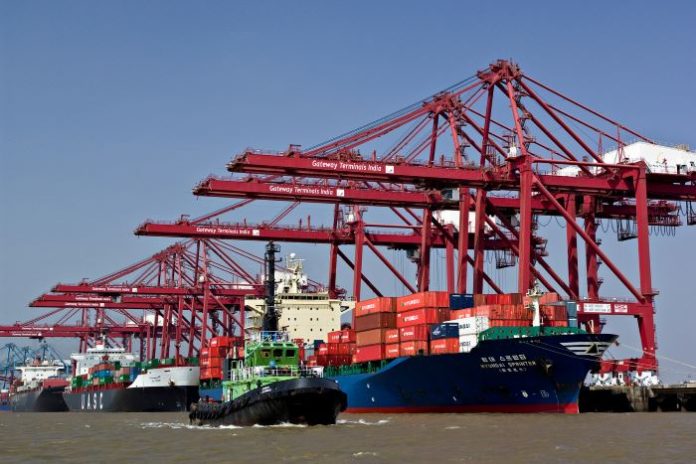A Bill aiming to provide autonomy to India’s top 12 major ports and improve their efficiency and competitiveness was introduced in Lok Sabha on Thursday amid objections from the opposition parties.
The Union Cabinet, chaired by Prime Minister Narendra Modi had approved the proposal of the Ministry of Shipping to replace the Major Port Trusts Act, 1963 by the Major Port Authorities Bill, 2020.
The proposed legislation was aimed to empower the major ports to perform with greater efficiency on account of full autonomy in decision making and by modernizing the institutional framework of major Ports.
Seeking to provide regulation and vest the administration with control and management of major ports, the Bill was introduced in the Lok Sabha by the Shipping Minister Mansukh Mandaviya.
Earlier, the Bill was introduced in the Lok Sabha in 2016 and thereafter referred to the Parliamentary Standing Committee (PSC). The PSC, after taking evidence and widespread consultations, submitted its report in July 2017. Based on this, the Ministry of Shipping introduced the official amendment to the Bill in the Lok Sabha in 2018.
However, the Bill got lapsed after the dissolution of previous Lok Sabha.
With a view to promote the expansion of port infrastructure and facilitate trade and commerce, the Major Port Authorities Bill 2020 bill aims at decentralizing decision making and to infuse professionalism in the governance of major ports.
It would help to impart faster and transparent decision making benefiting the stakeholders and better project execution capability. The Bill is aimed at reorienting the governance model in central ports to the landlord port model in line with the successful global practice. This will also help in bringing transparency to the operations of major ports.
The Bill has been prepared after extensive consultation with all the stakeholders and Ministries/ Departments and taking into account the recommendations of PSC.
The Bill is more compact in comparison to the Major Port Trusts Act, 1963 as the number of sections has been reduced to 76 from 134 by eliminating overlapping and obsolete Sections.
The new Bill has proposed a simplified composition of the Board of Port Authority which will comprise of 11 to 13 Members from the present 17 to 19 Members representing various interests.
A compact Board with professional independent Members will strengthen decision making and strategic planning. Provision has been made for the inclusion of representative of State Government in which the Major Port is situated, Ministry of Railways, Ministry of Defence and Customs, Department of Revenue as Members in the Board apart from a Government Nominee Member and a Member representing the employees of the Major Port Authority.
The role of the Tariff Authority for Major Ports (TAMP) has been redefined. Port Authority has now been given powers to fix tariff which will act as a reference tariff for purposes of bidding for PPP projects. PPP operators will be free to fix tariffs based on market conditions. The Board of Port Authority has been delegated the power to fix the scale of rates for other port services and assets including land.
An Adjudicatory Board has been proposed to be created to carry out the residual function of the erstwhile TAMP for Major Ports, to look into disputes between ports and PPP concessionaires, to review stressed PPP projects and suggest measures to review stressed PPP projects and suggest measures to revive such projects and to look into complaints regarding services rendered by the ports/ private operators operating within the ports would be constituted.
The Boards of Port Authority have been delegated full powers to enter into contracts, planning, and development, fixing of tariff except in national interest, security and emergency arising out of inaction and default.
In the present MPT Act, 1963 prior approval of the Central Government was required in 22 instances.
The Board of each major port shall be entitled to create a specific master plan in respect of any development or infrastructure established or proposed to be established within the port limits and the land appurtenant thereto and such master plan shall be independent of any local or State Government regulations of any authority whatsoever.
Provisions of CSR and development of infrastructure by Port Authority have been introduced. Provision has also been made for safeguarding the pay and allowances and service conditions including pensionary benefits of the employees of major ports and tariffs of major ports.


